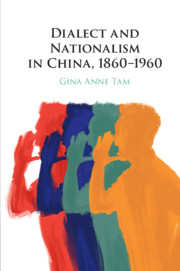In the history of Québec, the 1960s are known as the time of the Quiet Revolution. That decade is commonly referred to as a major watershed since it marked the onset of a spectacular economic, social, and cultural recovery of the Francophone (“French Canadian”) population. Previously, and for two centuries, Francophone Québec had been dominated by the British Empire and English Canada. Throughout the period, as a cultural minority, it had borne the brunt of ethnoracial stereotypes and had suffered from discrimination in the workplace. I seek to investigate one dimension of the destigmatizing process that unfolded in the 1960s by focusing on the discursive strategies devised by a group of young leftist intellectuals who argued that Francophone Québec needed a new national language as a condition of its full emancipation. My research focuses on major contradictions that this radical group had to confront: 1) they could have rejected the vernacular, stigmatized language (known as joual) emblematic of the English domination, to adopt the Parisian French and thus become fully part of a great civilization, but by doing so they would have lapsed into another form of colonization since this superior language was considered as foreign and imposed at the expense of “authenticity”; and 2) they could have promoted joual as the authentic language of the nation and worked to free it from stigma, but this would have come at the price of a “parochialization” of Québec culture. I show that these intellectuals failed to invent the collective myths that would have transcended this double bind and other contradictions. Finally, the paper compares Québec to other societies in the New World in order to better highlight the distinctiveness of this case.


